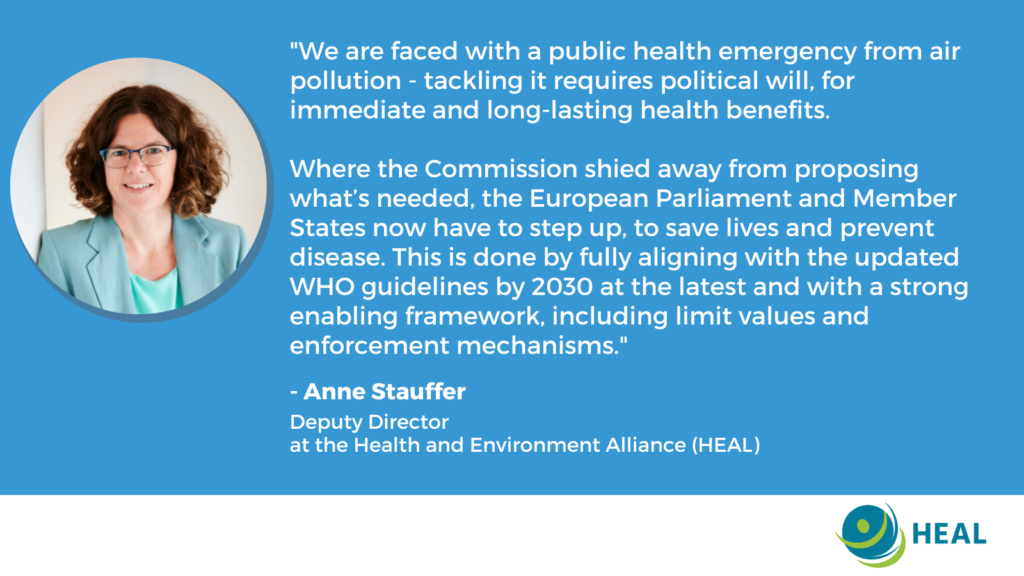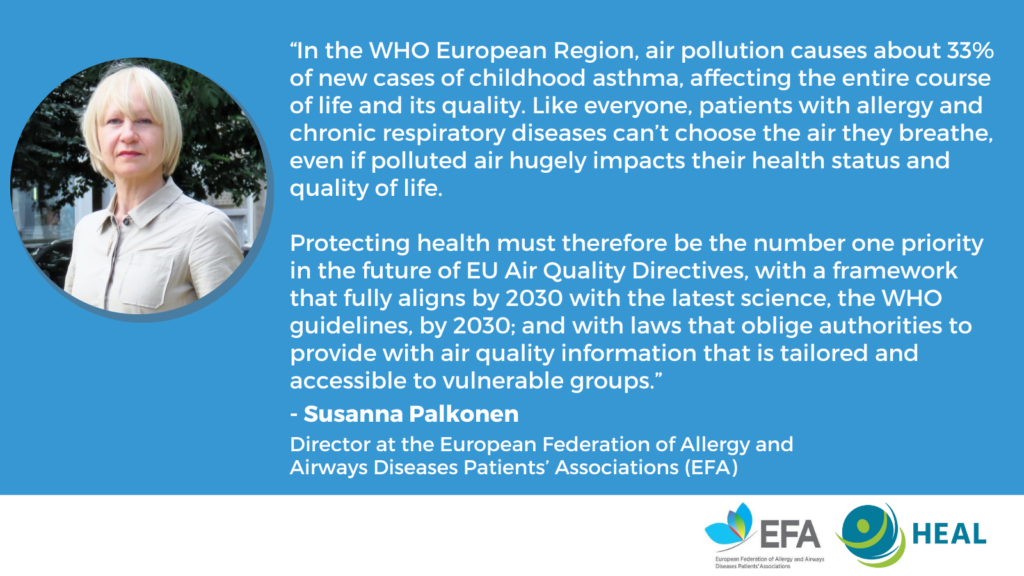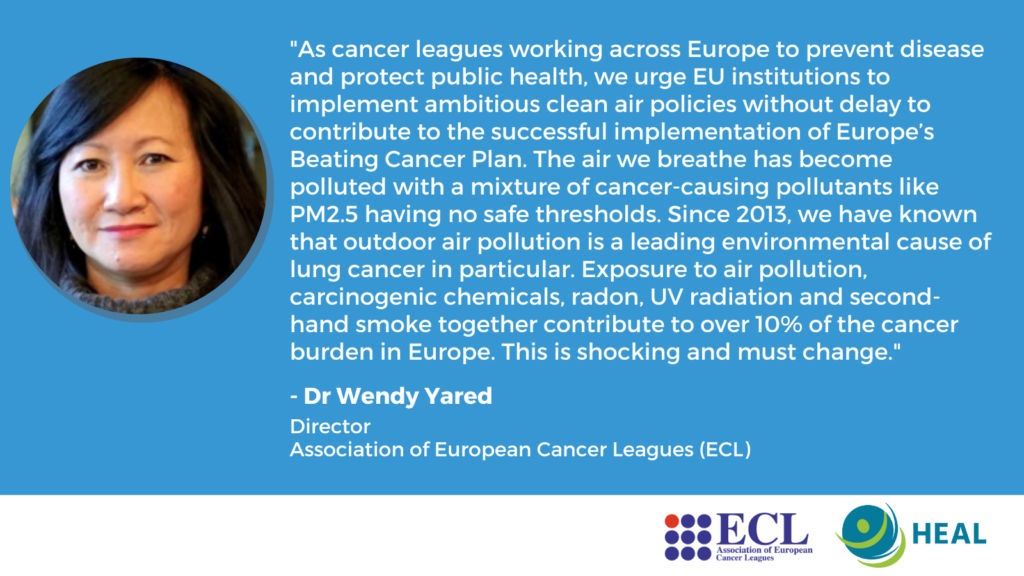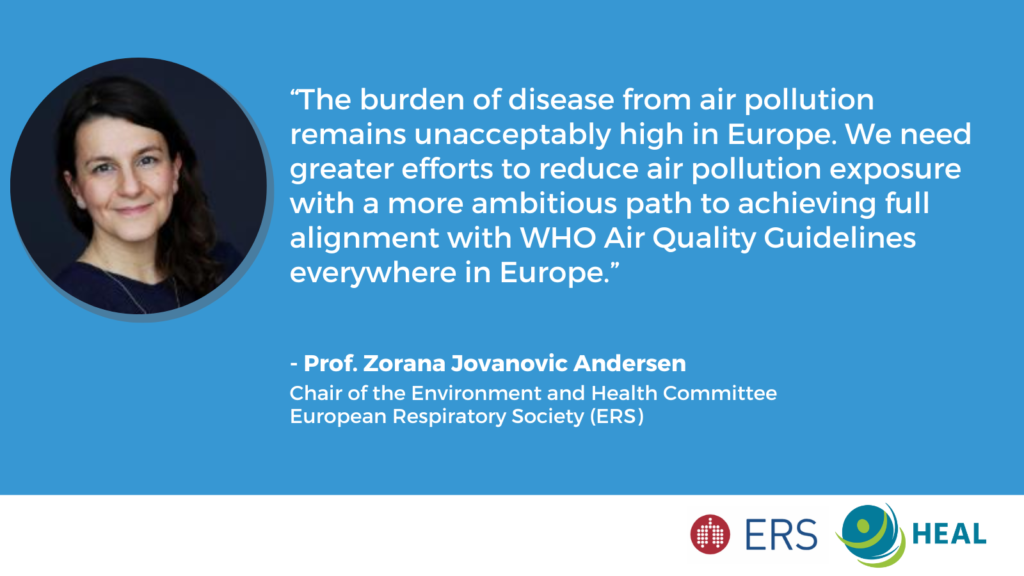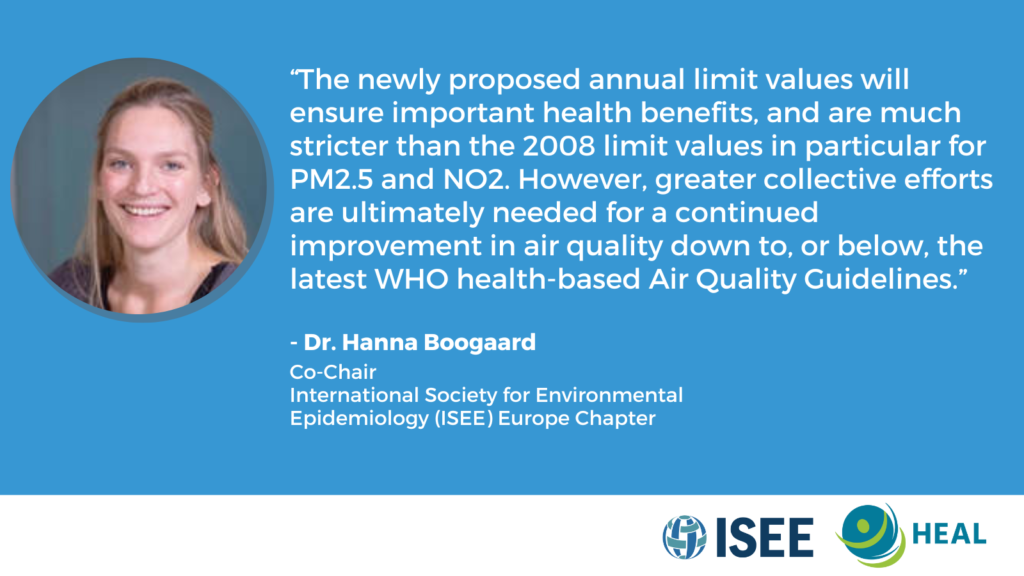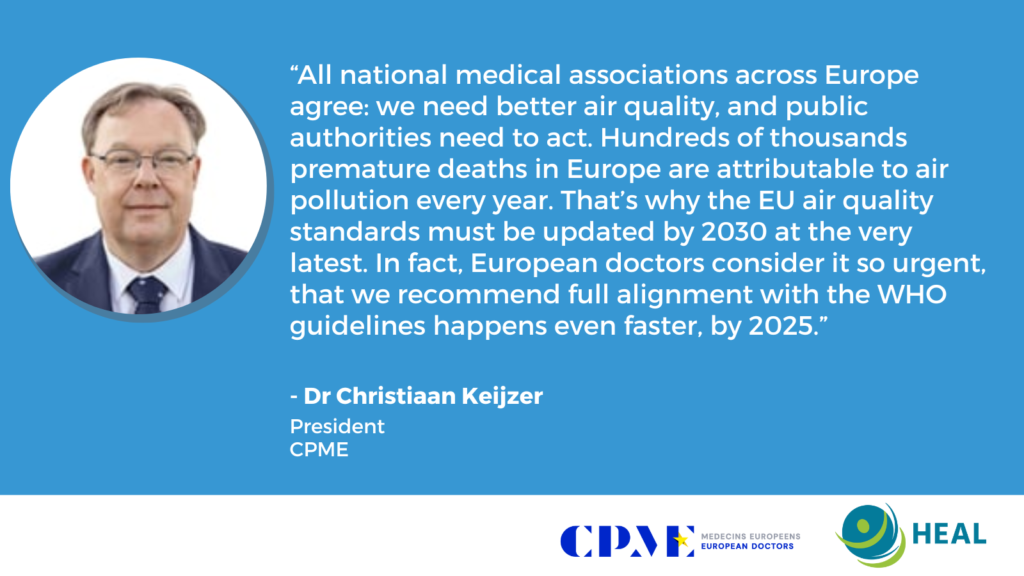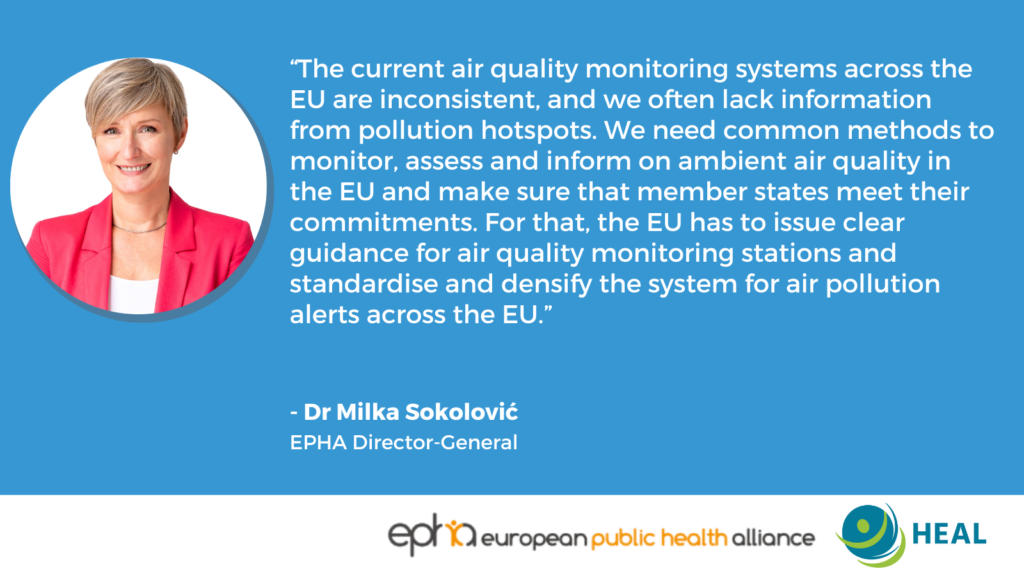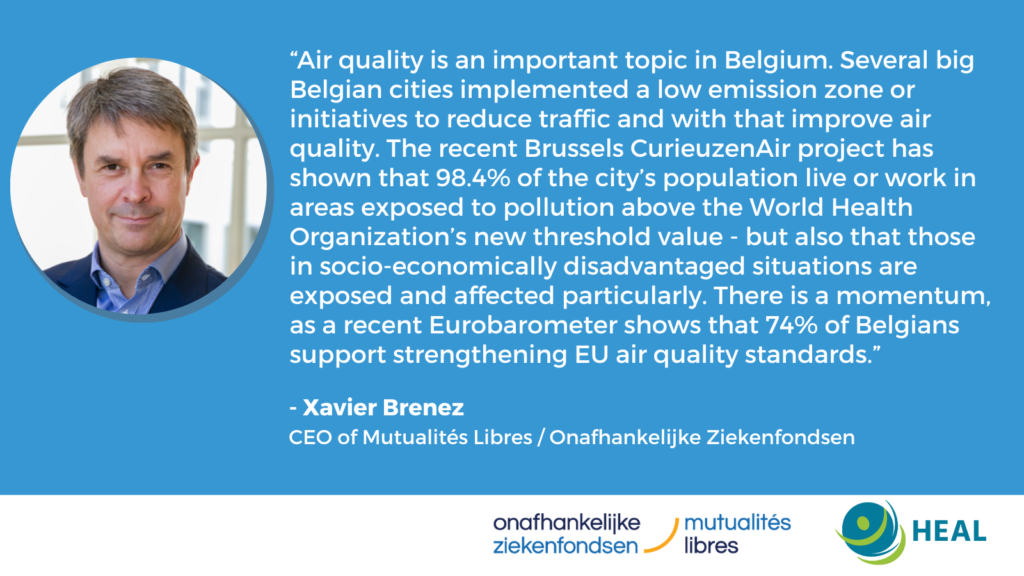HEAL calls on European Commission President Ursula von der Leyen to commit to protecting people’s health from the triple crisis during her second term in a letter. HEAL urges her to safeguard and strengthen the EU climate and environmental acquis for better health, and accelerate on the zero pollution path, including for the foreseen reform of the EU chemicals law REACH.
The European Commission has just released its proposal on updating the Ambient Air Quality Directive, as part of the Zero Pollution Package.
The science is clear: air pollution is a threat to everyone’s health, even at low levels, and affects those most that are already vulnerable (those already ill, children, elderly, pregnant women, and socio-economically disadvantaged).
People want clean air, and delivering on that is a question of political will and brings immediate health benefits.
The European Commission’s proposal on the revision of the Ambient Air Quality Directive fails to address the urgency to act, to swiftly reduce the health burden.
Reactions from the health community:
“We are faced with a public health emergency from air pollution – tackling it requires political will, for immediate and long-lasting health benefits. Where the Commission shied away from proposing what’s needed, the European Parliament and Member States now have to step up, to save lives and prevent disease. This is done by fully aligning with the updated WHO guidelines by 2030 at the latest and with a strong enabling framework, including limit values and enforcement mechanisms.”
Anne Stauffer, Deputy Director, Health and Environment Alliance
“In the WHO European Region, air pollution causes about 33% of new cases of childhood asthma, affecting the entire course of life and its quality. Like everyone, patients with allergy and chronic respiratory diseases can’t choose the air they breathe, even if polluted air hugely impacts their health status and quality of life. Protecting health must therefore be the number one priority in the future of EU Air Quality Directives, with a framework that fully aligns by 2030 with the latest science, the WHO guidelines, by 2030; and with laws that oblige authorities to provide with air quality information that is tailored and accessible to vulnerable groups.”
Susanna Palkonen, Director at the European Federation of Allergy and Airways Diseases Patients’ Associations (EFA)
“As cancer leagues working across Europe to prevent disease and protect public health, we urge EU institutions to implement ambitious clean air policies without delay to contribute to the successful implementation of Europe’s Beating Cancer Plan. The air we breathe has become polluted with a mixture of cancer-causing pollutants like PM2.5 having no safe thresholds. Since 2013, we have known that outdoor air pollution is a leading environmental cause of lung cancer in particular [link]. Exposure to air pollution, carcinogenic chemicals, radon, UV radiation and second-hand smoke together contribute to over 10% of the cancer burden in Europe [link]. This is shocking and must change.”
Dr Wendy Yared, Director of the Association of European Cancer Leagues (ECL)
“The burden of disease from air pollution remains unacceptably high in Europe. We need greater efforts to reduce air pollution exposure with a more ambitious path to achieving full alignment with WHO Air Quality Guidelines everywhere in Europe.”
Prof. Zorana Jovanovic Andersen, Chair of the Environment and Health Committee of ERS
“The newly proposed annual limit values will ensure important health benefits, and are much stricter than the 2008 limit values in particular for PM2.5 and NO2. However, greater collective efforts are ultimately needed for a continued improvement in air quality down to, or below, the latest WHO health-based Air Quality Guidelines.”
Dr. Hanna Boogaard, Co-Chair of the International Society for Environmental Epidemiology (ISEE) Europe Chapter
“All national medical associations across Europe agree: we need better air quality, and public authorities need to act. Hundreds of thousands premature deaths in Europe are attributable to air pollution every year. That’s why the EU air quality standards must be updated by 2030 at the very latest. In fact, European doctors consider it so urgent, that we recommend full alignment with the WHO guidelines happens even faster, by 2025.”
Dr Christiaan Keijzer, CPME President
“The current air quality monitoring systems across the EU are inconsistent, and we often lack information from pollution hotspots. We need common methods to monitor, assess and inform on ambient air quality in the EU and make sure that member states meet their commitments. For that, the EU has to issue clear guidance for air quality monitoring stations and standardise and densify the system for air pollution alerts across the EU.”
Dr Milka Sokolović – EPHA Director-General
“Air quality is an important topic in Belgium. Several big Belgian cities implemented a low emission zone or initiatives to reduce traffic and with that improve air quality. The recent Brussels CurieuzenAir project has shown that 98.4% of the city’s population live or work in areas exposed to pollution above the World Health Organization’s new threshold value – but also that those in socio-economically disadvantaged situations are exposed and affected particularly. There is a momentum, as a recent Eurobarometer shows that 74% of Belgians support strengthening EU air quality standards.”
Xavier Brenez, CEO of Mutualités Libres, Belgium

